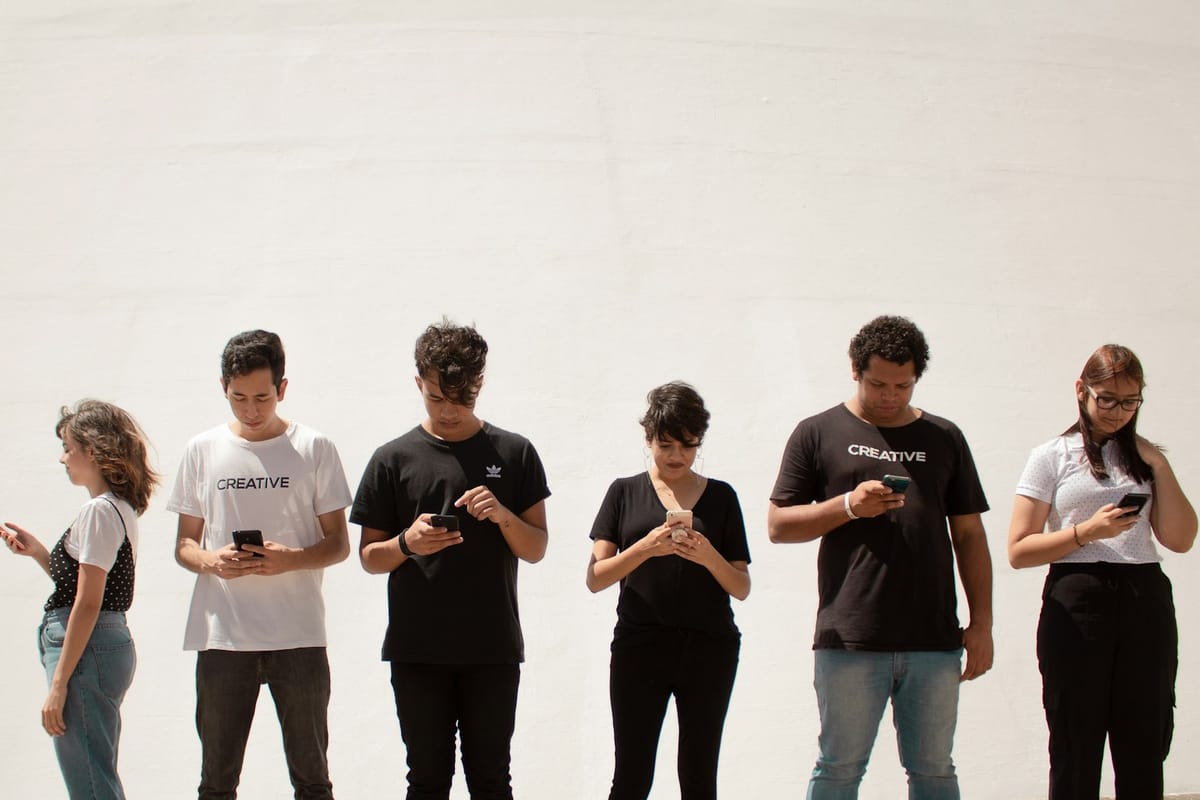Less Smartphone, More Clarity

Daily smartphone use is 4 hours and 37 minutes [1].
That's about 1.5 days a week, or 70 days a year.
On average, we spend 20% of our lives and a staggering 30% of our waking minutes on our phones (subtracting eight hours of sleep).
Nearly a third of our lives... wow.
I've been slowly waning off my phone since discovering these frightening statistics.
From multiple hours a day to somewhere between 12 minutes and 2 hours. Which still isn't perfect, but it's progress.
It only took two simple techniques, which I want to share with you.
Make your phone boring
One thing that's helped me dramatically is an app called Minimalist Phone. It transforms your phone's home screen into a black-and-white, text-based interface.

In theory, this reduces stimulation and encourages less compulsive usage.
In practice, it works!
With this bland interface, I slowly stopped checking my phone every five minutes because there wasn't anything visually stimulating to grab my attention (vibrant colors, animations, notification icons).
Minimalist Phone is only available on Android, but similar apps exist for Apple users (check out Dumbify or Blank Spaces).
It has single-handedly put days back into my control.
One step further
Last week, I conducted an experiment to further reduce my phone usage. I didn't stop using my phone, but I tried to be more conscious of it.
I opted out of taking my phone to places it wasn't absolutely necessary (restaurants, grocery stores, parks) and pursued activities that cause natural disconnection: reading physical books, spending time in nature, mediating in the sun, and hiking with a friend in New Hampshire.
I spent 5 hours on my phone that week, and it felt great.
One thing that surprised me from that week was the mental clarity. I had multiple insights on problems bouncing around in my noggin for months.
Less distraction = space to think = more problems solved.
It seems like phones erode our reserves for distraction-free thinking. Which sounds good; we avoid anxiety. But is it good for us?
When we're distracted, our problems continue to build, leading to a bigger blowup or a greater craving for our phones instead of making tangible progress.
However, it can be draining to confront the issues we fight to ignore.
Despite initial hurdles, I believe more space to think leads to a healthier mind in the long run. It's like exercise: it often sucks in the moment, but you feel better after.
There are still daily hurdles that (seem to) send me back to the starting line. But it's getting better because I'm getting more reps.
Conclusion
Smartphones have a place in our lives. They give us access to nearly infinite knowledge, global communication, and much more.
However, they are tools first. With the right tactics, they don't have to be attention-jacking dopamine-based slot machines.
All it takes is a free app and a mindset adjustment.
See where it takes you.